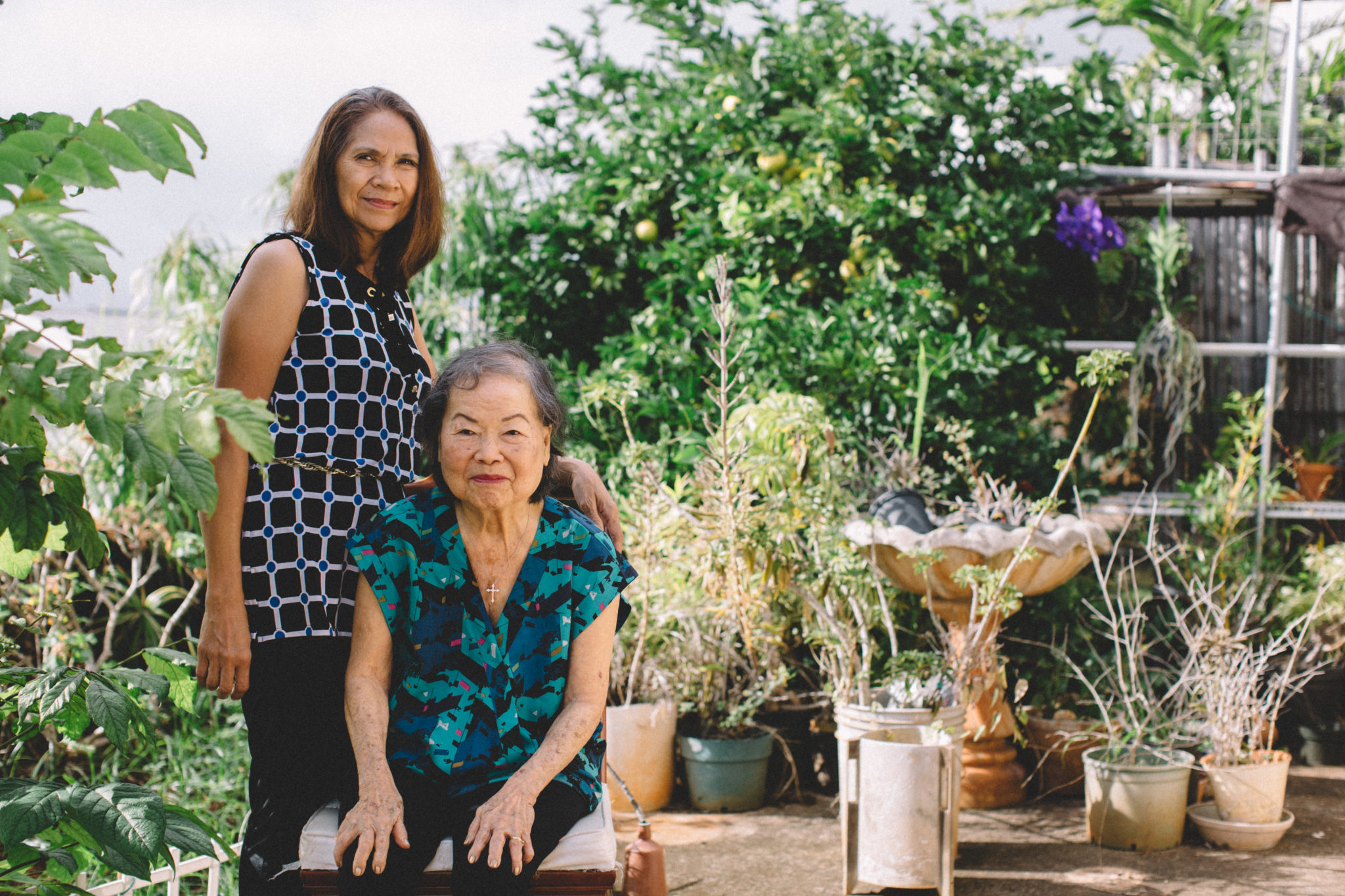One of a four-part series featuring different types of human bonds: The Human Bond
Images by John Hook & Jonas Maon
“I think she is tops,” says 91-year-old Jean Yamada of her live-in caregiver, Lourdes Vivar Noble. “But she isn’t always tops.” When is she not? “When she’s awfully, awfully conceited.” Then, Jean clarifies in a bare whisper: “She gets awfully conceited if she thought I was only saying good things about her.”
Playful banter between Noble and Jean, who are caregiver and client, respectively, is quick. “I love you, Grandma,” Noble says. “I wish I could say the same,” is Jean’s cheeky retort. While their relationship is predicated on assertiveness and wit, it is solidified by a mutual care for one another. Since July 2014, Noble has shared Jean’s ‘Aiea home with her client, whom she calls loving, caring, and considerate of her needs. Is Noble tired? Jean encourages her to rest. “Very few clients are like her, most are focused on themselves,” says Noble, who views Jean and her family as her own. “Caregiving is thinking of the other person instead of yourself,” she says. “You are giving yourself to the other person.”

In early 2014, Jean (who is, in full disclosure, the grandmother of FLUX Hawaii’s editor) was diagnosed with dementia. She moved temporarily to her daughter Sharon’s home in Mililani, where Noble first cared for her on a part-time basis as an employee of home care agency Attention Plus Care. Jean, who sometimes has trouble remembering names, came up with pet ones for Noble. “She called me Dancing Lady, Singing Lady, because that’s what we were doing in Mililani,” Noble says. They also talked about the white moonflower that only blooms at night and the dying orchids at the house that seemed beyond saving. “[They] were going to be thrown away, and I said I can make them live,” Noble recalls. “That plant, after two months, bloomed. … And from then on she called me the Orchid Lady.”
When Jean’s revolving set of caregivers topped out at 18, her family decided one live-in caregiver could provide more consistent care. They offered the position to Noble, who accepted. Before moving into Jean’s home in ‘Aiea, Noble took a month-long vacation to the Philippines, where she is from. When she returned, she found Jean’s health had deteriorated. The once spritely senior’s weight had dropped to a dangerously low 86 pounds. Her family worried that this was the end.

Working with the family and Jean’s part-time caregivers, Noble, like she had done with the flowers, began nursing Jean back to life. “I explained why she has to eat, and then we talk about the birds and the bees and the coconut trees, and then she’d forget about saying she didn’t like to eat,” Noble says. Three months later, Jean had gained back 20 pounds.
What is Noble’s nickname today? “Sexy Wexy,” says Noble, who demonstrates how she wiggles her hips when she exercises, or when she teases Jean to make her laugh. “She doesn’t remember my name, but she never forgets that Sexy Wexy thing,” she says, beaming with pride and, even, a hint of conceit.
This story is part of our Companions Issue.

